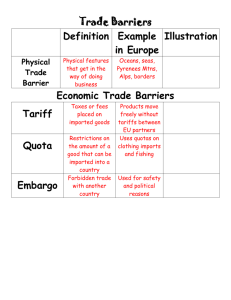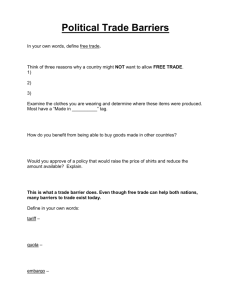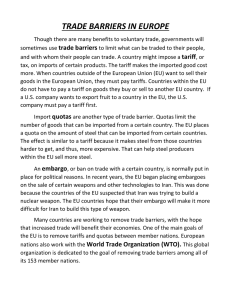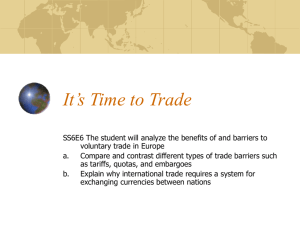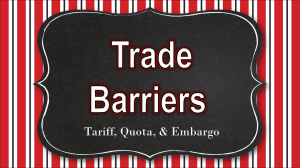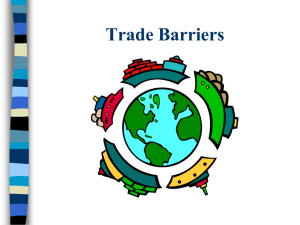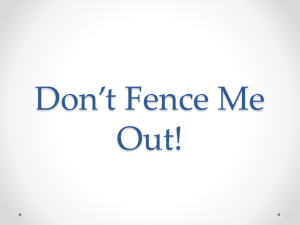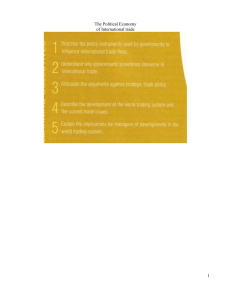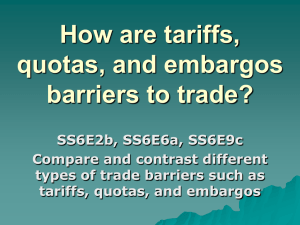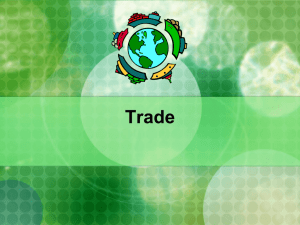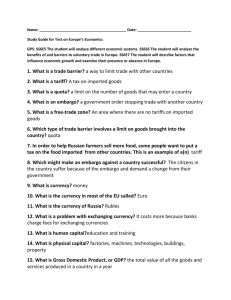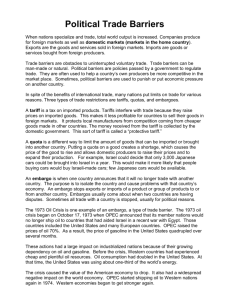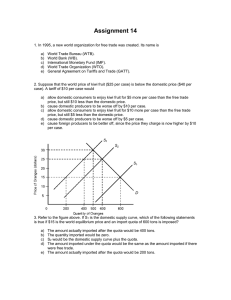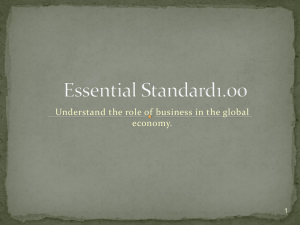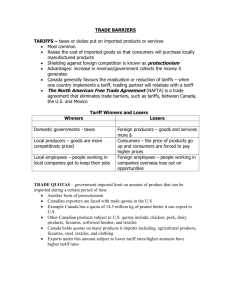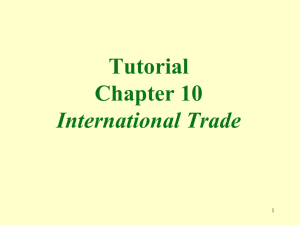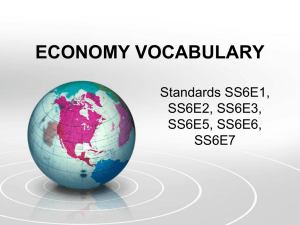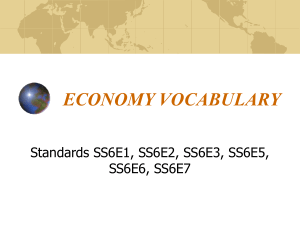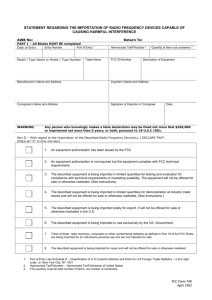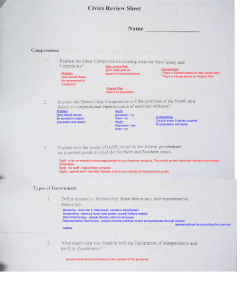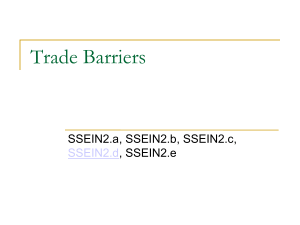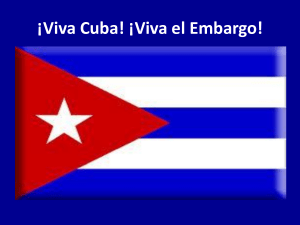File - Brighten Academy Middle School
advertisement
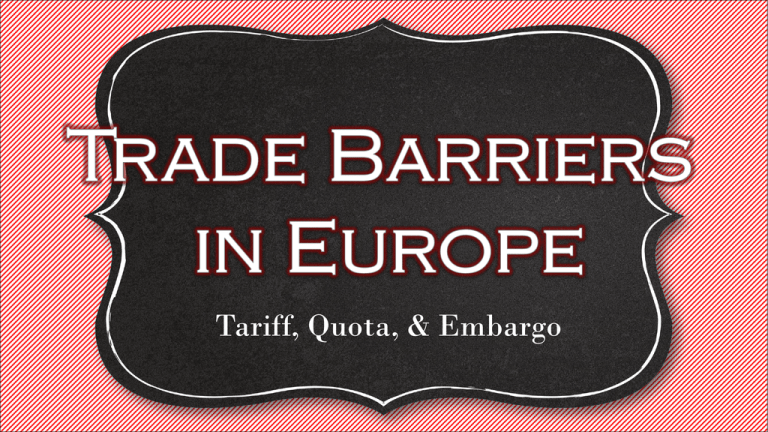
Tariff, Quota, & Embargo • This involves the exchange of goods or services between countries. • International trade is described in terms of: o Exports: the goods and services sold to other countries o Imports: the goods or services bought from other countries • Free Trade: Nothing hinders or gets in the way from two nations trading with each other. • Trade Barriers: Trade is difficult because things get in the way. • There are costs and benefits related to free trade as well as as trade barriers. • Trade barriers keep products from being bought and sold between countries. • There are 3 major types of economic trade barriers: 1. Tariffs 2. Quotas 3. Embargoes • They “hinder” (stop, or slow down) global trade. • Natural barriers can slow down trade between nations by making it harder and more expensive to move goods from place to place. • EX) Swiss Alps – make it difficult for northern Italy to trade with Switzerland. The countries are building tunnels through the mountains to help make trade easier. • A tariff is a tax put on goods imported from other countries. • The effect of a tariff is to raise the price of the imported product. • It makes imported goods more expensive so that people are more likely to purchase products produced in the home country. • Tariffs are taxes charged for goods that leave or enter a country. • In order to get a product from another country, you have to pay extra for it. • Just like sales tax • Think of how many goods the United States imports. How do you think tariffs might affect the economy? • How do you think this affects world trade? • When countries outside of European Union want to sell their goods in the EU, they must pay tariffs. • This makes the non-EU products more expensive than the products made by EU members. • Which would you buy? • EX) If a US company wants to export fruit to a country in the EU, the US company must pay a tariff which makes US fruit more expensive. • A quota is a limit on the amount of goods that can be imported from another country. • Putting a quota on a good creates a shortage, which causes the price of the good to rise. • Consumers are less likely to buy this good because it’s now more expensive than the good produced in the home country. • Quotas encourage people to buy domestic products, rather than foreign goods (boosts country’s economy). • A quota is when a country limits the amount of a product that can be sold to another country. • EX: A country might limit the amount of cars sold to other countries to 500,000 per year. • What happens when a country has already bought their entire quota? • How do you think this affects world trade? • The EU places a quota on the amount of steel that can be imported from certain countries. • The effect is similar to a tariff, because it makes steel from those countries harder to get, and more expensive. • This helps steel producers within EU sell more steel. • The government orders a complete ban on trade with another country. • The embargo is the harshest type of trade barrier and is usually enacted for political purposes to hurt a country economically. • An embargo is when one country completely refuses to trade with another country. • EX) We used to have an embargo with the Soviet Union • EX) We now have an embargo with Cuba • This is usually done between two countries that don’t like each other. • How do you think this affects world trade? • Recently, EU began placing embargoes on the sale of certain weapons and other technologies to Iran. • This was done because the countries of the EU suspected Iran was trying to build a nuclear bomb. • EU countries hope that the embargo will make it difficult for Iran to build this type of weapon. Most barriers to trade are designed to prevent imports from entering a country. Trade barriers provide many benefits: • protects homeland industries from competition, • protects jobs, • helps provide extra income for the government, • increases the number of goods people can choose from, • and decreases the costs of these goods through increased competition. • Tariffs increase the price of imported goods. • Less competition from world markets means there is an increase in the price. • The tax on imported goods is passed along to the consumer so the price of imported goods is higher.
